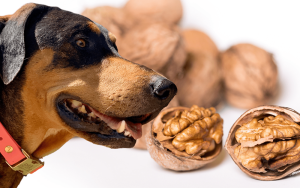Can Cats Eat Watermelon? A Complete Guide to Feline Safety and Health

Introduction
As pet owners, we are always keen to share our favorite foods with our furry friends. Watermelon, with its sweet, refreshing taste, is a popular summer treat for humans, and it’s natural to wonder if we can offer this juicy fruit to our cats. But can
cats eat watermelon safely? Is it good for them, or could it cause harm? In this comprehensive guide, we’ll dive into the topic of cats and watermelon, examining the benefits, risks, and important considerations when offering this fruit to your feline
companion.
By the end of this article, you’ll have a thorough understanding of whether or not watermelon is a safe and healthy treat for cats and how to feed it to them appropriately.
Can Cats Eat Watermelon?
Yes, cats can eat watermelon in small amounts, but there are important things to consider before offering this fruit to your pet. While watermelon isn’t toxic to cats, it’s not a natural part of their diet. Cats are obligate carnivores, meaning their
digestive systems are designed to process meat, not fruits or vegetables. Their nutritional needs are best met through animal-based proteins and fats.
That being said, watermelon can be a safe and hydrating treat if fed in moderation. Let’s explore the potential benefits and risks of feeding watermelon to cats, so you can make an informed decision.
Benefits of Watermelon for Cats
-
Hydration: One of the main reasons watermelon can be a good occasional treat for cats is its high water content. Watermelon is about 90% water, which makes it an excellent source of hydration, especially during hot weather. Cats
often don’t drink enough water on their own, so providing a watery fruit like watermelon can help keep them hydrated. -
Low in Calories: Watermelon is relatively low in calories, making it a good option for cats who may be overweight or are on a calorie-controlled diet. A small bite of watermelon will satisfy their taste buds without contributing
significantly to their daily calorie intake. -
Vitamins and Minerals: Watermelon contains vitamins A and C, both of which have health benefits. Vitamin A supports eye health and immune function, while Vitamin C is an antioxidant that helps protect cells from damage and supports
overall health. Although cats do not rely on plant-based sources of vitamin C (they produce it naturally in their bodies), small amounts of it in watermelon can still be beneficial. -
Rich in Fiber: Watermelon contains a small amount of fiber, which can assist with digestion. However, since cats are obligate carnivores, their digestive systems don’t require a high amount of fiber, so watermelon should not replace
their regular diet of meat-based foods.
Risks and Considerations of Feeding Watermelon to Cats
While watermelon can be safe in small amounts, there are some risks and considerations to keep in mind when offering it to your cat:
-
Stomach Upset: Too much watermelon, or any fruit, can lead to digestive issues like diarrhea or an upset stomach. Cats’ stomachs are not designed to handle large quantities of fruit, and overfeeding watermelon could cause them
to feel uncomfortable. -
Choking Hazard: The seeds and rind of watermelon can be a choking hazard or cause intestinal blockages. While watermelon flesh itself is safe to eat in small pieces, the seeds should be removed before offering it to your cat.
Additionally, the rind should be avoided entirely, as it is tough and difficult to digest. -
Sugar Content: Although watermelon is naturally low in sugar compared to other fruits, it still contains some natural sugars. Feeding your cat too much fruit can contribute to weight gain, and it could also lead to an increased
risk of diabetes, especially in older or overweight cats. Remember, cats do not need carbohydrates in their diet, so treats like watermelon should only be offered occasionally. -
Allergic Reactions: While rare, some cats may have sensitivities or allergies to certain fruits. Watch for signs of an allergic reaction, such as itching, swelling, or gastrointestinal distress after your cat eats watermelon.
If you notice any adverse effects, discontinue feeding watermelon and consult your veterinarian.
How to Safely Feed Watermelon to Cats
If you’ve decided to offer your cat watermelon as a treat, there are a few guidelines to follow to ensure it’s done safely:
-
Remove the Seeds: Always remove the seeds from watermelon before offering it to your cat. While watermelon seeds aren’t toxic to cats, they can cause choking or lead to intestinal blockages if swallowed in large quantities.
-
Cut into Small Pieces: Slice the watermelon into small, manageable pieces to make it easier for your cat to eat. Avoid giving them large chunks that could pose a choking hazard.
-
Serve in Moderation: Remember, watermelon should only be an occasional treat and should not make up a significant portion of your cat’s diet. Too much fruit can lead to gastrointestinal upset or weight gain, so serve it sparingly.
-
Avoid the Rind: Don’t give your cat the watermelon rind. It’s tough, fibrous, and difficult for cats to digest. Stick to the soft, fleshy part of the fruit.
-
Monitor for Reactions: After offering your cat a small piece of watermelon, monitor them closely for any signs of discomfort, digestive upset, or allergic reactions. If all goes well, you can continue offering watermelon in moderation
as a treat.
Can Kittens Eat Watermelon?
Kittens, like adult cats, should generally avoid watermelon and other fruits. Kittens have very sensitive digestive systems, and their nutritional needs are focused on protein and fat from high-quality kitten food. Feeding watermelon to a kitten could
cause digestive issues or interfere with their regular diet. If you want to offer your kitten a treat, stick to kitten-safe options specifically designed for their age group, and always consult your veterinarian before introducing new foods.
Alternatives to Watermelon for Cats
If you’re looking for healthy treat options for your cat that are more suited to their carnivorous nature, consider these alternatives:
-
Meat-based Treats: Offer small, bite-sized pieces of cooked chicken, turkey, or lean beef. These treats are protein-rich and will cater to your cat’s natural dietary needs.
-
Catnip: Many cats love catnip, which can provide entertainment and mild relaxation. It’s safe and non-toxic for most cats.
-
Commercial Cat Treats: There are plenty of commercially available cat treats that are formulated to be safe and nutritionally appropriate for cats. Look for those with high protein content and low carbohydrates.
-
Canned Tuna or Salmon: A small amount of canned tuna or salmon (in water, not oil) can be a special treat for your cat. Just be cautious of the salt content and don’t offer it too often.
-
Cat Grass: Some cats enjoy nibbling on cat grass, which provides fiber and can help with hairball control.
Conclusion
In moderation, watermelon can be a safe and refreshing treat for cats, especially during the warmer months when hydration is key. However, it should not replace their regular diet, which should be rich in meat-based proteins. Be sure to remove seeds and
rind, serve watermelon in small portions, and monitor your cat for any adverse reactions.
Remember that while fruits like watermelon are generally safe in small amounts, they should only be offered occasionally as a treat. Always prioritize a balanced diet of high-quality cat food to meet your feline friend’s nutritional needs.
Before introducing any new foods into your cat’s diet, it’s always a good idea to consult your veterinarian, especially if your cat has any pre-existing health conditions or dietary restrictions.
FAQs About Cats and Watermelon
-
Can cats eat watermelon seeds?Watermelon seeds should be removed before feeding watermelon to your cat, as they can pose a choking hazard or cause digestive issues.
-
Is watermelon safe for diabetic cats?While watermelon is low in sugar, it still contains natural sugars. If your cat has diabetes or is at risk, it’s best to avoid fruit treats altogether.
-
Can watermelon cause diarrhea in cats?If a cat eats too much watermelon, it could cause digestive upset or diarrhea. Always serve fruit in moderation.
-
How much watermelon can I give my cat?A small piece or two of watermelon is enough for a treat. It should not make up a significant part of their diet.
-
Are there any fruits that cats can eat?Some fruits, like cantaloupe and berries, are generally safe for cats in small amounts. Always research before introducing new fruits.
By following these guidelines, you can share the joy of watermelon with your cat safely and responsibly, ensuring their health and happiness.






